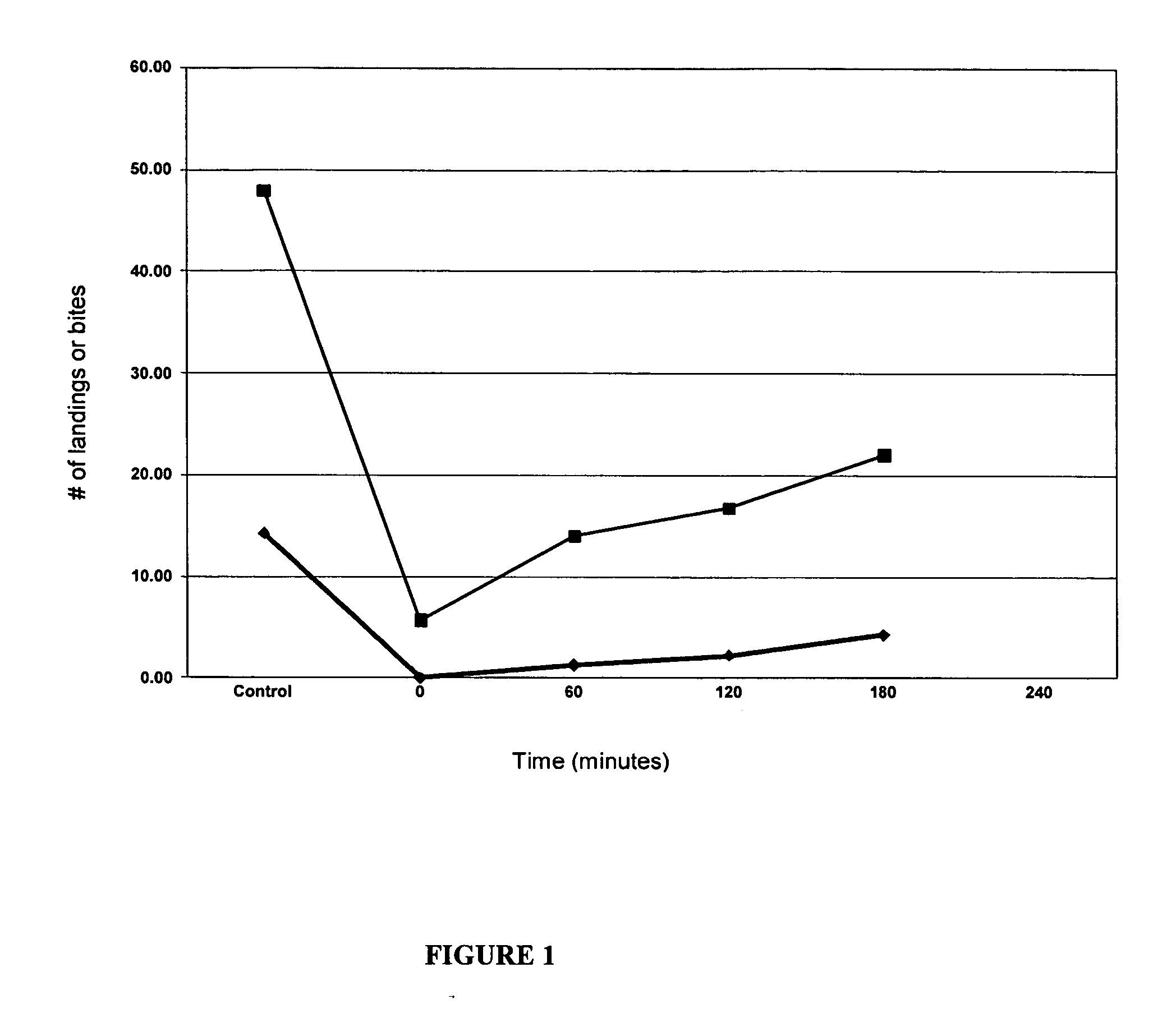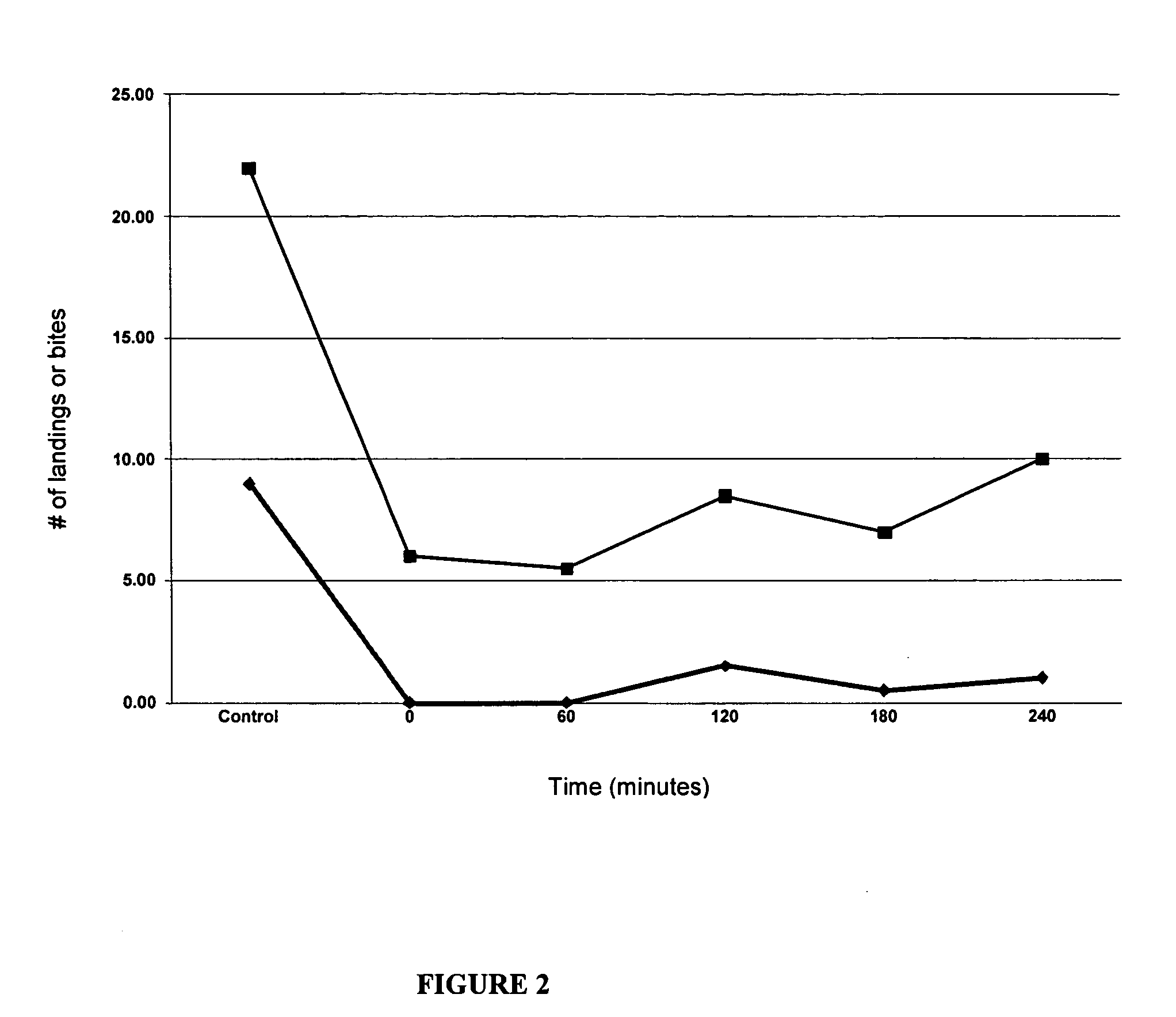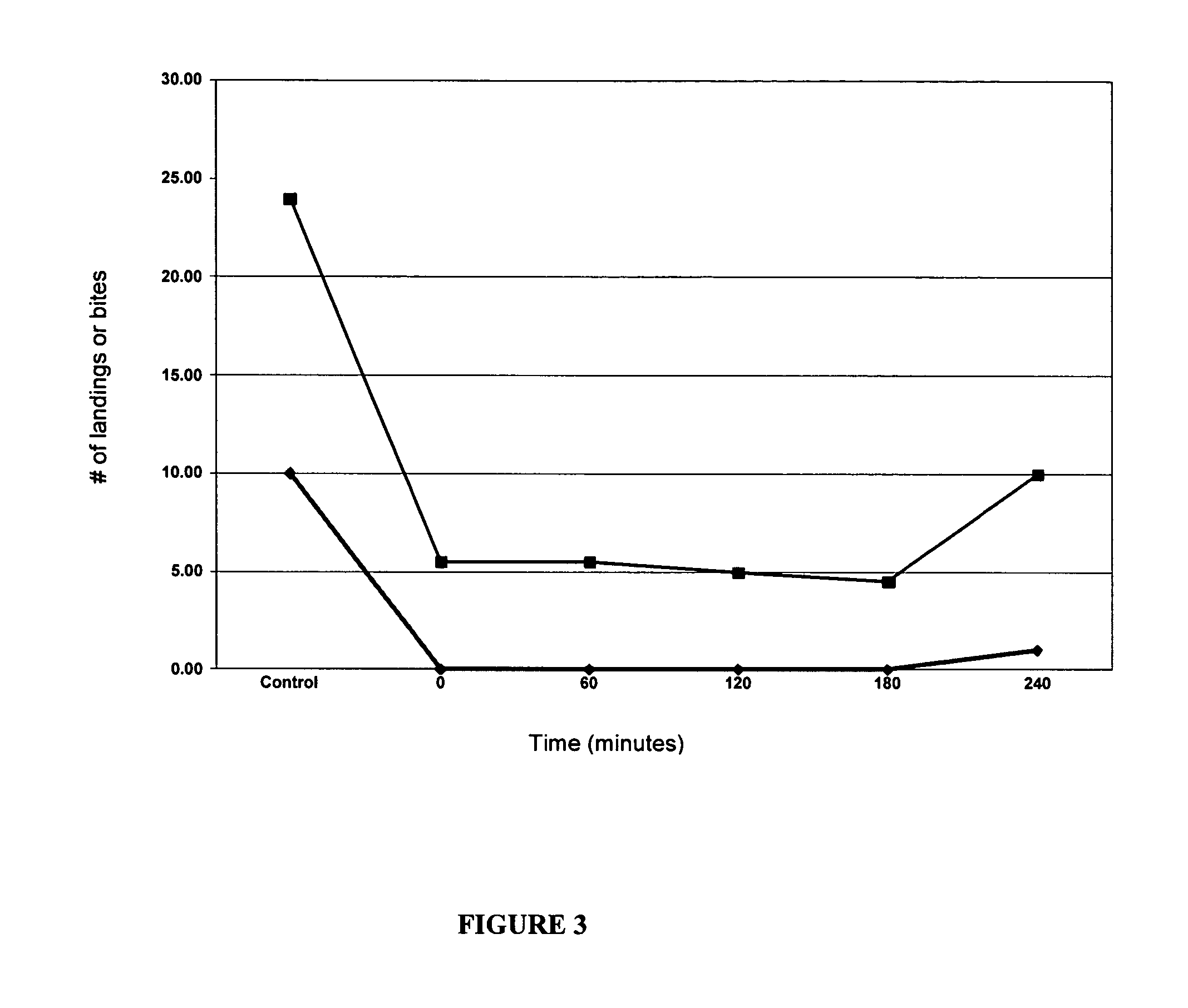Insect repellent
a technology of compositions and repellents, applied in the field of repellent compositions, can solve the problems of affecting the effect of insect repellent, affecting the health of people and pets, and being toxic to humans and household pets, so as to achieve the effect of effective repellent, less risk to the environment, and high success in repelling insects
- Summary
- Abstract
- Description
- Claims
- Application Information
AI Technical Summary
Benefits of technology
Problems solved by technology
Method used
Image
Examples
example 1
[0076] Administration of the Repellent Composition Reduces Mosquito Landings and Bites in Humans.
[0077] A laboratory culture of Aedes atropalpus adults maintained in continuous culture at the University of Ottawa was used. The culture was derived from collections made from temporary pools in shale beds along the Ottawa River at Fitzroy Harbour, Ontario. This species is known as the rock hole breeding mosquito and is found in southern Ontario and Quebec. It is representative of the many Aedes spp. which are the most important mosquitoes biting humans in spring and summer. The genus is capable of transmitting tropical diseases such as dengue and yellow fever. This species of mosquito is a known vector that transmits West Nile virus.
[0078] The WHO test protocol for mosquito repellents was used (Barnard, D.R. 2000. Repellent and toxicants for personal protection. WHO / CDS / WHOPES). Two clear Perspex™ mosquito cages (38 cm␣38 cm×38 cm) containing more than 400 adults of both sexes and va...
example 2
[0086] A Combination of EPO and Catnip Oil Provides Greater Repellency than Catnip alone.
[0087] The laboratory culture of Aedes atropalpus adults described in Example 1 was used. The procedure described in Example 1 was repeated.
[0088] The compounds tested contained 4% of catnip (Nepeta cataria) essential oil, and either 4% or 0% evening primrose (Oenothera biennis) high gamma linoleic acid (“GLA”) vegetable oil. A formulation with active ingredient steam distilled catnip oil (80% nepetalactone), and a second active ingredient cold pressed evening primrose oil (10% GLA) was prepared as an emulsifiable concentrate in water, using Novemer EC-1 (Noveon Inc., Cleveland, Ohio) distributed by L. V. Lomas Ltd. Bampton, Ontario. The formulation contained 8.0 g / L of Novemer EC-1 emulsifying agent, plus 1.0 g / L of rosemary extract (lipid antioxidant), and 3.0 g / L of Germall Plus (topical antimicrobial agent). The active ingredients (catnip oil and evening primrose oil) tested were 4% catnip...
example 3
[0095] Administration of the Repellent Composition Reduces Insect Landings and Bites in Horses.
[0096] Ten horses from local farms were used. The horses were commonly found on farms in Canada. The repellent composition tested contained 4% catnip (Nepeta cataria) essential oil and 4% evening primrose (Oenothera biennis) high GLA vegetable oil. Otherwise, the composition was as described in Example 1.
[0097] The horses were kept in a pasture near a pond in Canada. The experiment was performed during the summer when mosquitoes are more prevalent. Each of the horses was treated by its owner with 25 ml of the repellent composition on the right side of its neck. Thus, each animal acted as its own control and different rates of carbon dioxide release did not interfere with the results. The horses were allowed to graze and move about as they normally do. After one-half hour, the horses were evaluated for bites and then allowed to continue grazing. This procedure was repeated every half hour...
PUM
| Property | Measurement | Unit |
|---|---|---|
| w/w | aaaaa | aaaaa |
| w/w | aaaaa | aaaaa |
| w/w | aaaaa | aaaaa |
Abstract
Description
Claims
Application Information
 Login to View More
Login to View More - R&D
- Intellectual Property
- Life Sciences
- Materials
- Tech Scout
- Unparalleled Data Quality
- Higher Quality Content
- 60% Fewer Hallucinations
Browse by: Latest US Patents, China's latest patents, Technical Efficacy Thesaurus, Application Domain, Technology Topic, Popular Technical Reports.
© 2025 PatSnap. All rights reserved.Legal|Privacy policy|Modern Slavery Act Transparency Statement|Sitemap|About US| Contact US: help@patsnap.com



